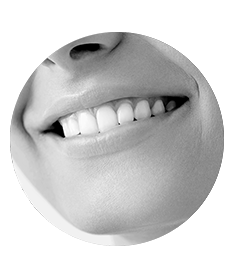My patients often ask me about dietary restrictions before and after dental implant surgery, and it’s an important conversation to be had. The foods you eat before, during, and after the procedure can significantly impact the success of your dental implants and your overall recovery time.
While dental implants are a remarkable solution for missing teeth, proper nutrition throughout the process helps ensure optimal healing and long-term success. Your diet plays three essential roles: supporting your immune system, promoting bone integration, and protecting the surgical site as it heals.
In this guide, I’ll walk you through exactly what to eat and what to avoid at each stage of your dental implant journey.
Pre-Procedure Diet (2 Weeks Before)
A well-planned diet in the weeks before dental implant surgery can significantly impact your recovery and the procedure’s success. Your pre-surgery nutrition should focus on healing-promoting nutrients and proper hydration.
For optimal healing, incorporate foods rich in vitamin C and protein into your daily meals. Lean meats, fish, citrus fruits, and leafy greens provide these essential nutrients that support tissue repair and boost your immune system. Greek yogurt and eggs are excellent protein sources that are easy to consume and digest.
Calcium and vitamin D play crucial roles in bone health and implant integration. Include dairy products, fortified plant-based alternatives, and fatty fish in your diet. Spending 15 minutes in natural sunlight can help your body produce vitamin D naturally.
During this period, avoid foods that could complicate your surgery or initial healing. Stay away from hard, crunchy items that might damage existing teeth, and limit sugar and processed foods that can promote inflammation. Alcohol and tobacco products should be avoided.
Proper hydration is essential for surgery preparation. Drink 8-10 glasses of water daily, but avoid carbonated beverages and limit caffeine intake. As your surgery date approaches, switch to water only, especially in the 8 hours before the procedure.

Day Before Surgery
The last full meal should be consumed at least 8 hours before your scheduled surgery time. Stick to light, easily digestible foods such as steamed vegetables, lean proteins, and whole grains for your final meals.
If your surgery is scheduled for the morning, avoid eating anything after midnight. For afternoon procedures, a light breakfast may be permitted, but confirm specific timing with your dental surgeon. Clear liquids like water are typically allowed up to 2 hours before the procedure.
Pre-surgery preparations include taking prescribed medications as directed by your dentist, brushing your teeth gently, and avoiding mouthwash.
Remember to inform your dentist about any medications, supplements, or health conditions that might affect the surgery. Get adequate rest the night before to support your body’s healing process.

Immediate Post-Surgery Diet (First 24-48 Hours)
The first two days after dental implant surgery require careful attention to your diet to protect the surgical site and promote healing. Consume only cool or lukewarm liquids to avoid irritating the implant area. Cool smoothies, protein shakes, and lukewarm broths provide essential nutrients while being gentle on your mouth.
Stay hydrated by sipping water frequently throughout the day, but avoid using straws, as the suction can disrupt blood clots and healing. Sports drinks can help replace electrolytes, but choose sugar-free varieties to prevent bacterial growth around the surgical site.
Temperature considerations are crucial—avoid hot soups, coffee, or tea, as heat can increase swelling and discomfort. Ice cream and cold yogurt drinks can help reduce swelling, but let them soften slightly before consuming.
Completely avoid alcoholic beverages, carbonated drinks, acidic juices, and any foods requiring chewing. These items can irritate the surgical site, interfere with medications, or compromise the initial healing process.
Soft Food Diet (Days 3-7)
After the initial liquid diet phase, you can transition to soft foods that require very minimal chewing. Yogurt, scrambled eggs, mashed potatoes, and tender fish provide essential proteins and carbohydrates while being gentle on your healing implant site.
Prepare foods by overcooking slightly, pureeing, or mashing to achieve a consistency that doesn’t require chewing. Cut food into tiny pieces and moisten with broths or sauces to aid swallowing. Steam vegetables until extra tender and blend fruits into smoothies.
Focus on nutrient-dense options like Greek yogurt, cottage cheese, oatmeal with mashed banana, and pureed vegetable soups. These foods deliver vital nutrients for healing while maintaining the necessary soft consistency.
Avoid foods that could irritate or damage the surgical site: nuts, seeds, crunchy vegetables, chewy meats, sticky foods, and anything with small particles that might get lodged in the healing area. I also recommend continuing to skip spicy foods and acidic items like citrus fruits or tomato-based dishes.

Recovery Period Diet (Weeks 2-8)
By week two, you gradually introduce foods requiring light chewing, starting with softer items like well-cooked vegetables, tender meats, and pasta. Test each new food carefully, paying attention to any discomfort. If pain occurs, return to softer options temporarily.
Focus on foods rich in zinc, vitamin C, and protein to support bone integration and soft tissue healing. Include lean meats, fish, eggs, legumes, and cooked vegetables. Consider nutritional supplements if recommended by your dentist.
Continue avoiding extremely hot or cold foods. Room temperature or slightly warm foods are ideal, as temperature extremes can cause sensitivity around the implant site. Let hot foods cool and allow frozen items to soften before eating.
When eating, chew primarily on the opposite side of your implant. Continue to cut your food into smaller pieces. Rinse with salt water after meals to keep the implant site clean during healing.

Long-term Dietary Guidelines
Once your implants are fully healed, they function like natural teeth, allowing you to enjoy most foods. Focus on a balanced diet rich in lean proteins, vegetables, fruits, whole grains, and dairy products to maintain both oral and overall health.
Maintenance Tips
Regular maintenance includes thorough chewing, drinking water between bites, and prompt cleaning after meals. While dental implants are durable, avoid biting directly into very hard foods like ice, hard candy, or nuts. Use caution with sticky foods like caramel or taffy that could potentially loosen the crown.
Foods to Be Cautious With
Monitor how your implants respond to different foods and adjust your diet accordingly. If you notice any sensitivity or discomfort, consult your dentist promptly. Minimize sugary and acidic foods that can affect surrounding natural teeth and gum health.
Optimal Nutrition for Implant Longevity
For optimal implant longevity, maintain adequate calcium and vitamin D intake through dairy products, leafy greens, and fatty fish. Drink alcohol in moderation and avoid tobacco products entirely, as these can impact bone density and gum health around the implant.
Nourishing Your New Smile
As a dental implant specialist, I’ve seen how proper nutrition can make all the difference in dental implant success. Following these dietary guidelines throughout your implant journey will ensure optimal healing and integration of your new tooth.
Once fully healed, you’ll be able to enjoy your favorite foods again with a natural-looking, fully functional smile.







